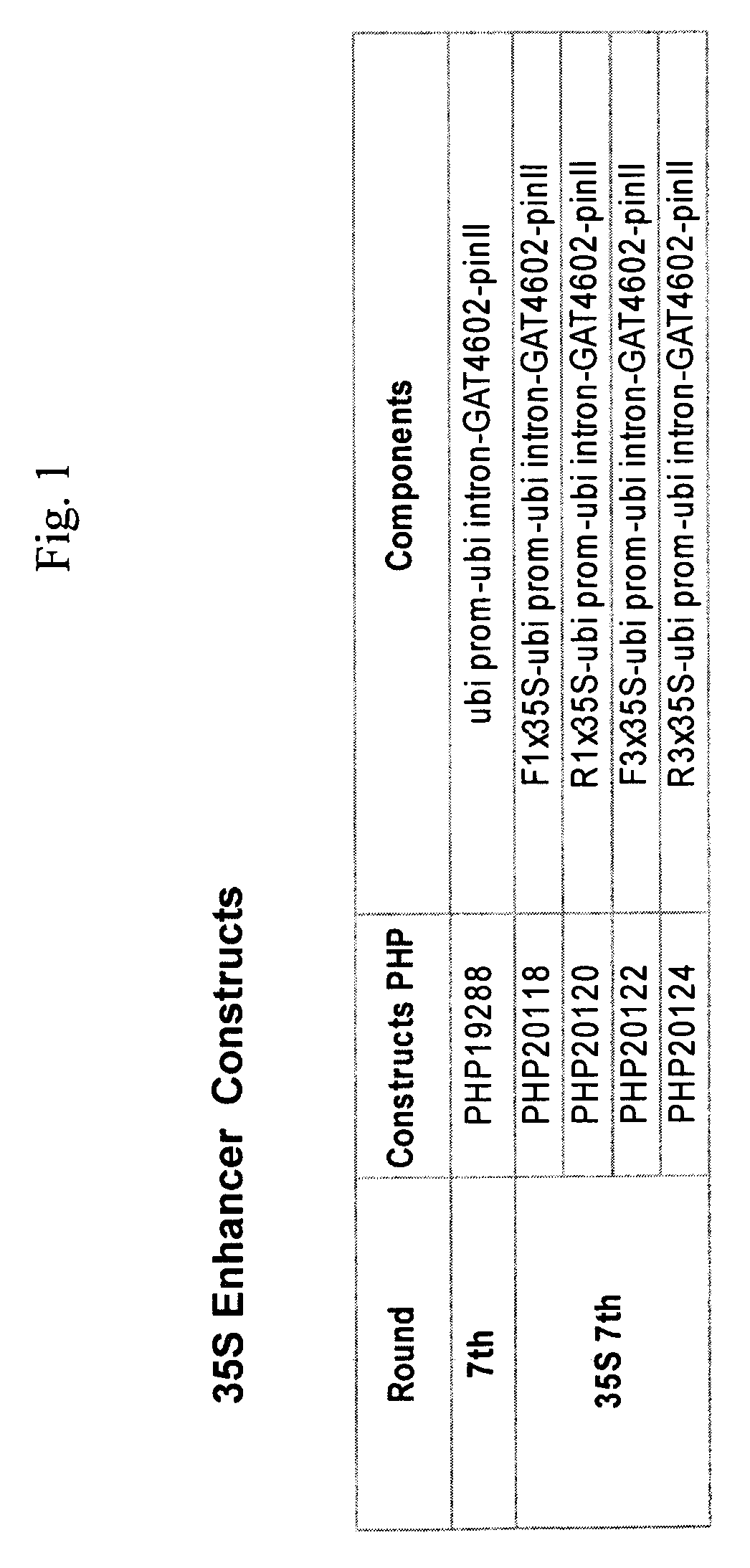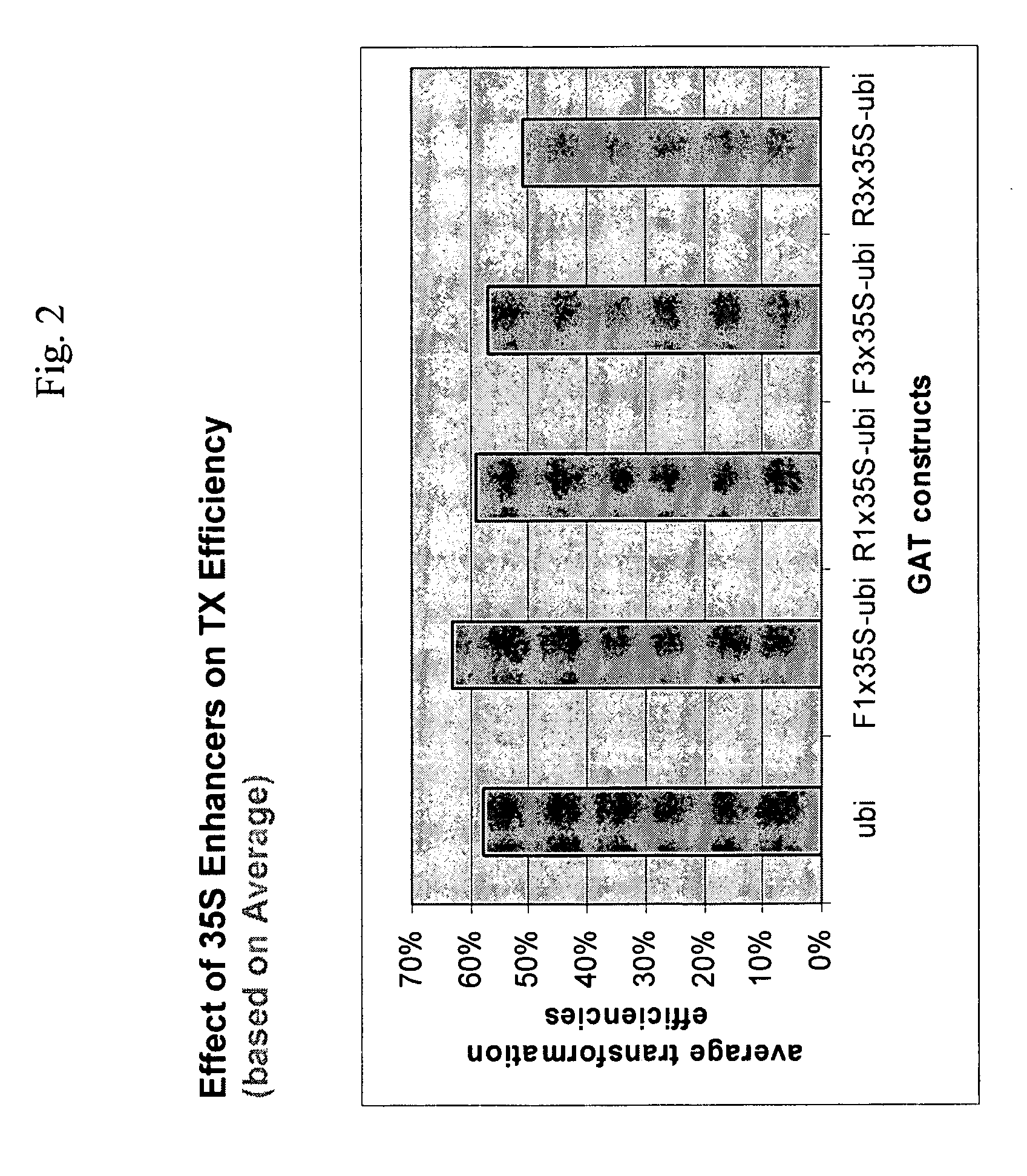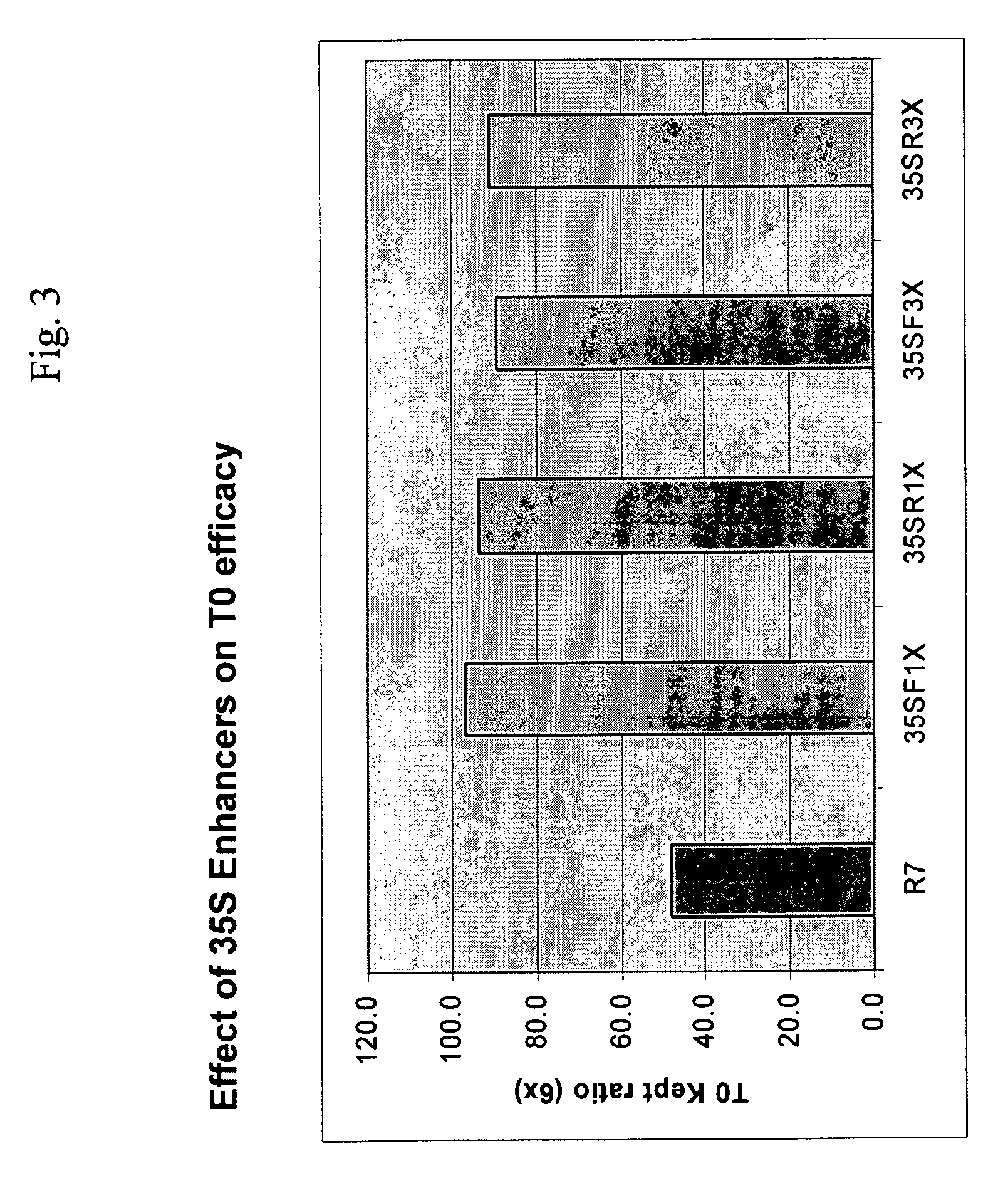Methods and compositions for expressing an herbicide-tolerant polynucleotide
a polynucleotide and herbicide-tolerant technology, applied in the field of molecular biology, can solve the problem that individual herbicides typically have incomplete activity spectrums against common weed species
- Summary
- Abstract
- Description
- Claims
- Application Information
AI Technical Summary
Benefits of technology
Problems solved by technology
Method used
Image
Examples
example 1
GAT-HRA Maize Plants are Tolerant of Various Herbicides and Agricultural Chemicals
[0304] For Agrobacterium-mediated transformation of maize with an expression cassette containing a GAT polynucleotide (SEQ ID NO:4) and an HRA polynucleotide (SEQ ID NO:66) operably linked to a constitutive promoter, the method of Zhao is employed (U.S. Pat. No. 5,981,840, and PCT patent publication WO98 / 32326; the contents of which are hereby incorporated by reference). Expression cassettes were made that comprised a GAT polynucleotide and an HRA polynucleotide. In some expression cassettes, the GAT and HRA polynucleotides were operably linked to at least one copy of a 35S enhancer [SEQ ID NO:72]. In some expression cassettes, the GAT and HRA polynucleotides were operably linked to two or three copies of the 35S enhancer of SEQ ID NO: 1. In some expression cassettes, the GAT polynucleotide was operably linked to a ubiquitin promoter and the HRA polynucleotide was operably linked to the native maize a...
example 2
GAT-HRA Soybean Plants are Tolerant of Various Herbicides and Agricultural Chemicals
Transformation and Regeneration of Transzenic Plants
[0320] Soybean embryos were bombarded with an expression cassette containing GAT (SEQ ID NO:68) and HRA polynucleotides (SEQ ID NO:65) operably linked to a constitutive promoter, as follows. The promoter used for the GAT sequence is the SCP1 promoter, and the promoter used for the HRA sequence is the SAMS promoter. The 2 promoter / gene combinations are arranged in a tandem orientation with the HRA promoter / gene downstream of the GAT promoter / gene. To induce somatic embryos, cotyledons less than 4 mm in length dissected from surface-sterilized, immature seeds of the soybean variety Jack were cultured in the light or dark at 26° C. on an appropriate agar medium for six to ten weeks. Somatic embryos producing secondary embryos were then excised and placed into a suitable liquid medium. After repeated selection for clusters of somatic embryos that mul...
example 3
Transgenic GAT-HRA Cotton is Tolerant of Several Herbicides
[0329] Cotton (Gossypium hirsutum) Coker 312 was transformed with a GAT polynucleotide (gat 4621) together with an Hra polynucleotide (SEQ ID NO:86) both operably linked to strong, constitutive plant viral promoters. The promoter linked to gat4621 contains a duplicated portion of the Strawberry Vein Banding Virus transcript promoter (Wang et al. Virus Genes 20: 11-17, 2000; Genbank X97304). The Hra gene was driven by a duplicated portion of the Mirabilis Mosaic Caulimovirus full-length transcript promoter (U.S. Pat. No. 6,420,547; Dey and Maiti, Transgenics 3:61-70, 1999). The transformation procedure used Agrobacterium tumefaciens containing an expression cassette with the genes to be transferred and cotyledon explant derived callus with some capacity to undergo embryogenesis. The callus was exposed to Agrobacterium for 48-72 hours. The callus was then exposed to selection for transformed cells on 50-200 μg / l chlorosulfuro...
PUM
 Login to View More
Login to View More Abstract
Description
Claims
Application Information
 Login to View More
Login to View More - R&D
- Intellectual Property
- Life Sciences
- Materials
- Tech Scout
- Unparalleled Data Quality
- Higher Quality Content
- 60% Fewer Hallucinations
Browse by: Latest US Patents, China's latest patents, Technical Efficacy Thesaurus, Application Domain, Technology Topic, Popular Technical Reports.
© 2025 PatSnap. All rights reserved.Legal|Privacy policy|Modern Slavery Act Transparency Statement|Sitemap|About US| Contact US: help@patsnap.com



